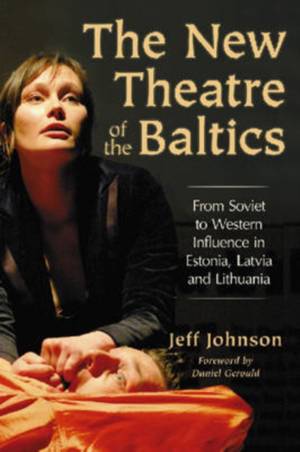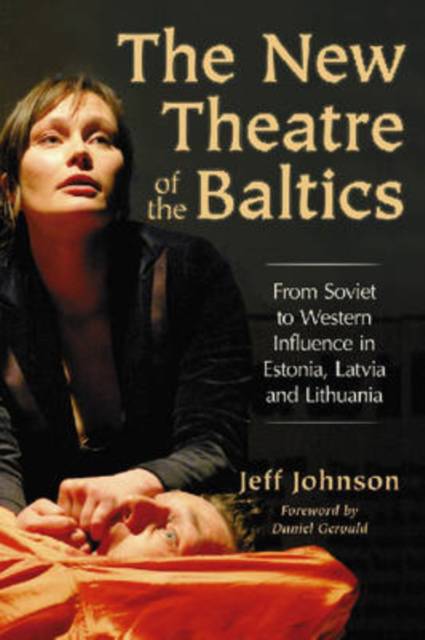
- Retrait gratuit dans votre magasin Club
- 7.000.000 titres dans notre catalogue
- Payer en toute sécurité
- Toujours un magasin près de chez vous
- Retrait gratuit dans votre magasin Club
- 7.000.0000 titres dans notre catalogue
- Payer en toute sécurité
- Toujours un magasin près de chez vous
The New Theatre of the Baltics
From Soviet to Western Influence in Estonia, Latvia and Lithuania
Jeff JohnsonDescription
Although Estonia, Latvia and Lithuania are culturally distinct, they share a common theatre history characterized by resistance, first as a response to Nazi occupation, then as an ideological weapon countering their annexation under strict Soviet ideology.
This comprehensive overview of contemporary theatre in the Baltic states includes interviews with major directors, writers, academics and critics, critiques of significant performances, and historical information to familiarize readers with the region. It not only discusses the political ramifications of the three countries' transition from occupied Soviet states to independent members of the European Union, but also addresses the aesthetic, cultural and national issues associated with the move to independence and the adaptation of a Western economic model.
More than an introduction, this book is a forum for ideas as well as a detailed, first-hand account of the current scene in Baltic theatre. While useful for anyone interested in contemporary theatre, it is also essential reading for those interested in Baltic studies, post-Soviet cultural history, and recent trends in East European literature.
Spécifications
Parties prenantes
- Auteur(s) :
- Editeur:
Contenu
- Nombre de pages :
- 232
- Langue:
- Anglais
Caractéristiques
- EAN:
- 9780786429929
- Date de parution :
- 07-03-07
- Format:
- Livre broché
- Format numérique:
- Trade paperback (VS)
- Dimensions :
- 167 mm x 228 mm
- Poids :
- 326 g

Les avis
Nous publions uniquement les avis qui respectent les conditions requises. Consultez nos conditions pour les avis.






